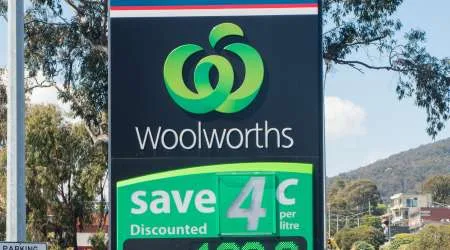What will the Woolworths/BP sell-off do to petrol prices?

Woolworths is flogging off its service stations in a $1.8 billion deal.
So yesterday Woolworths announced that it is going to sell its entire petrol retailing operation to fuel giant BP. Despite still having the biggest share of the supermarket dollar, Woolies has had a shocker year, and it needs some extra cash on its balance sheet to offset the billions it lost in its failed attempt to set up the Masters hardware chain. Caltex, which currently supplies fuel to Woolworths, also put in a bid for the petrol business, but evidently didn't offer up enough cash.
Under the deal, all of Woolworths' 527 petrol/convenience store sites will be sold to BP, along with an additional 16 sites currently earmarked for development. Woolworths will also trial opening "Woolworths Metro at BP" stores in existing BP sites, based on the existing model for small-format convenience stores it already uses in CBD locations. If that's successful it will roll that format out to 200 current BP sites.
It's very telling that the approach to those stores is so cautious; clearly Woolworths doesn't want another Masters debacle. But whatever the convenience store options are at your service station, the big question for most customers is: what happens to petrol prices?
The first thing to note is that this change won't happen for at least a year, since the deal will require regulatory approval. Until then, it will be business as usual if you buy your petrol at a Woolworths outlet.
Once the switch happens, Woolworths says it has entered into a 10-year agreement with BP to continue its 4-cents-per-litre fuel discount for shoppers with discount supermarket docket vouchers. Those discounts will also be available at BP outlets, which Woolworths says means that there will be a convenient service station that accepts discount vouchers near 80% of its supermarkets (up from 75%).
Woolworths also plans to allow customers to earn Woolworths Rewards points. Woolworths Rewards also had a messy 2016, with the supermarket dumping its complex "Woolworths Dollars" system in favour of a simpler points-per-dollar spent model, and restoring the ability to earn Qantas Frequent Flyer points following consumer complaints. From that perspective, the 10-year agreement is good news, since it means the discounts aren't likely to suddenly be withdrawn. Currently, it costs Woolworths $70 million a year to subsidise the fuel voucher discount; that cost will now be split with BP.
So the discount will remain in place. What remains as hard to predict as ever is how much petrol will actually cost. In the most recent quarter, ACCC analysis shows that fuel prices have been falling. However, recent global changes mean we're likely to see rises in the near future. And many drivers add unnecessarily to their fuel bill by needlessly paying extra for premium fuel.
Angus Kidman's Findings column looks at new developments and research that help you save money, make wise decisions and enjoy your life more. It appears Monday through Friday on finder.com.au.
Latest news headlines
-
All the big savings account interest rate rises: ING, AMP, Westpac + more
6 Feb 2026 |
-
Australian credit card debt soars 10% in a year: How can you escape the trap?
6 Feb 2026 |
-
4 cashback home loan offers to ease the pain of RBA rate hike
4 Feb 2026 |
-
Finder’s RBA Survey: Easing cycle ends as RBA delivers first rate hike since 2023
4 Feb 2026 |
-
Ubank Save is increasing its bonus rate up to 5.35% p.a.
3 Feb 2026 |
Picture: Nils Versemann/Shutterstock.com
Ask a question
